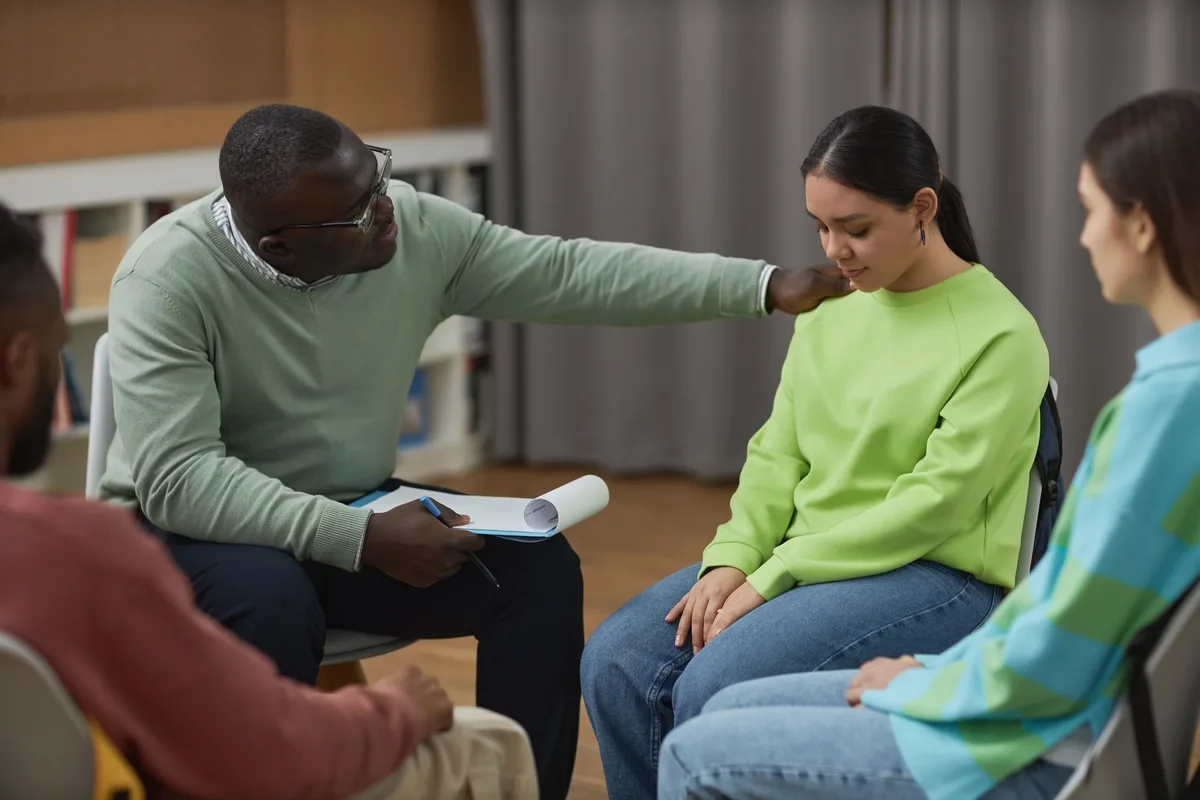24/7 Helpline:
(866) 899-221924/7 Helpline:
(866) 899-2219
Learn more about PTSD Treatment centers in Kandiyohi

Other Insurance Options

Multiplan

EmblemHealth

ComPsych

Evernorth

Anthem

Excellus

BHS | Behavioral Health Systems

Optum

Regence

Meritain

Health Partners

Carleon

Molina Healthcare

Magellan

Oxford

Medical Mutual of Ohio

Access to Recovery (ATR) Voucher

Amerigroup

Providence

Group Health Incorporated














